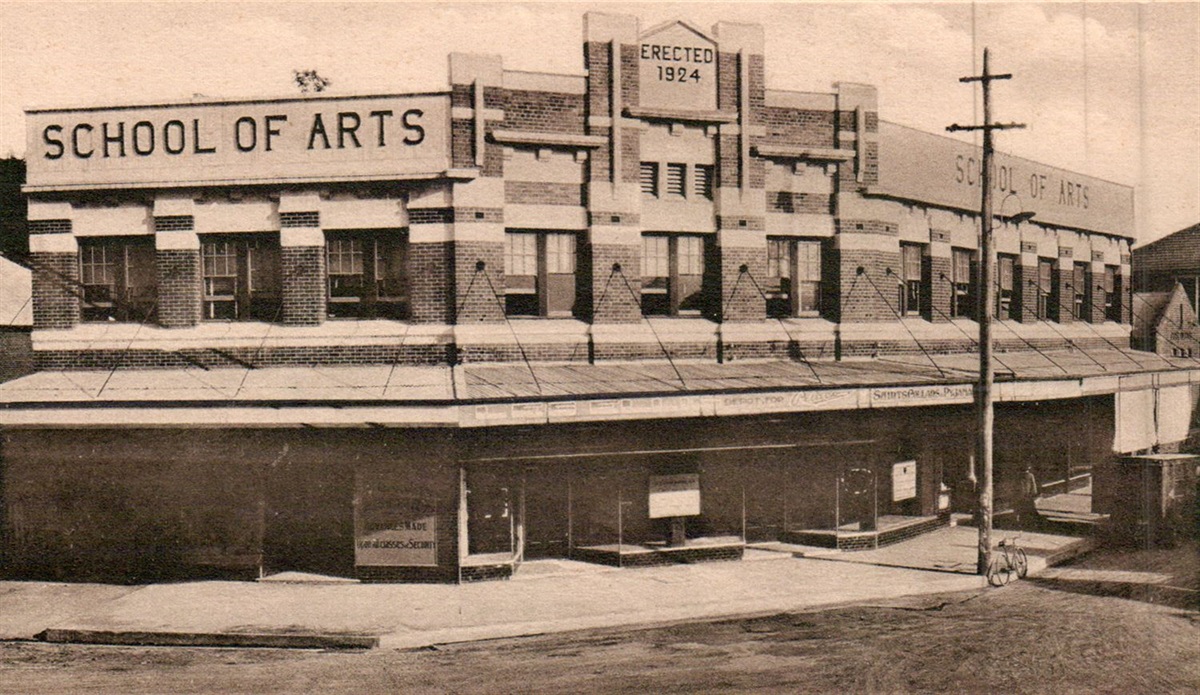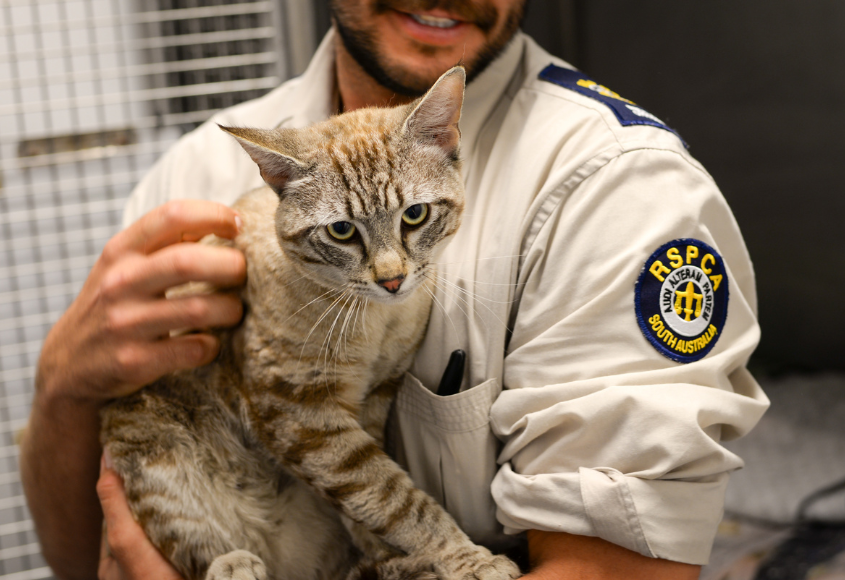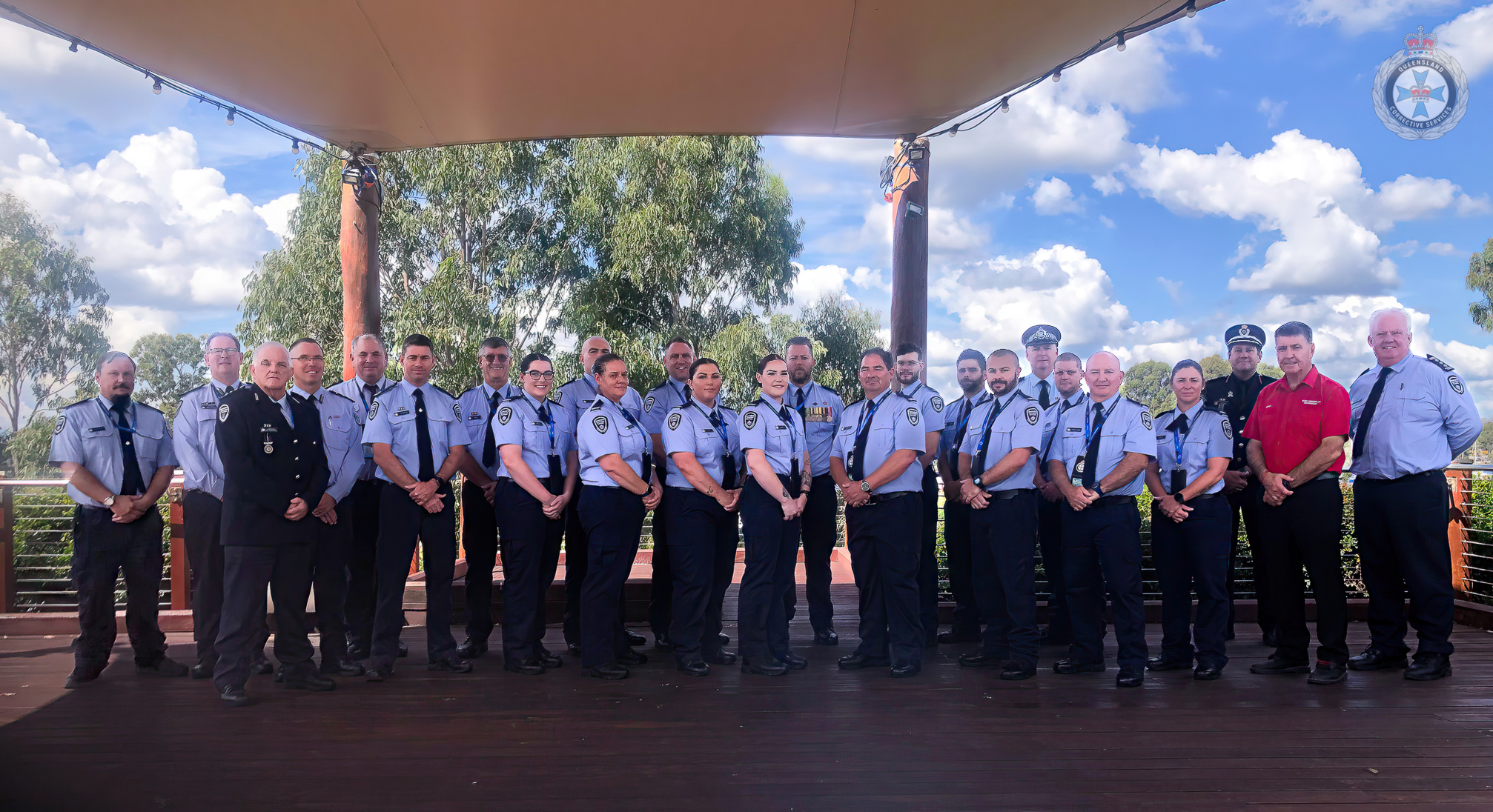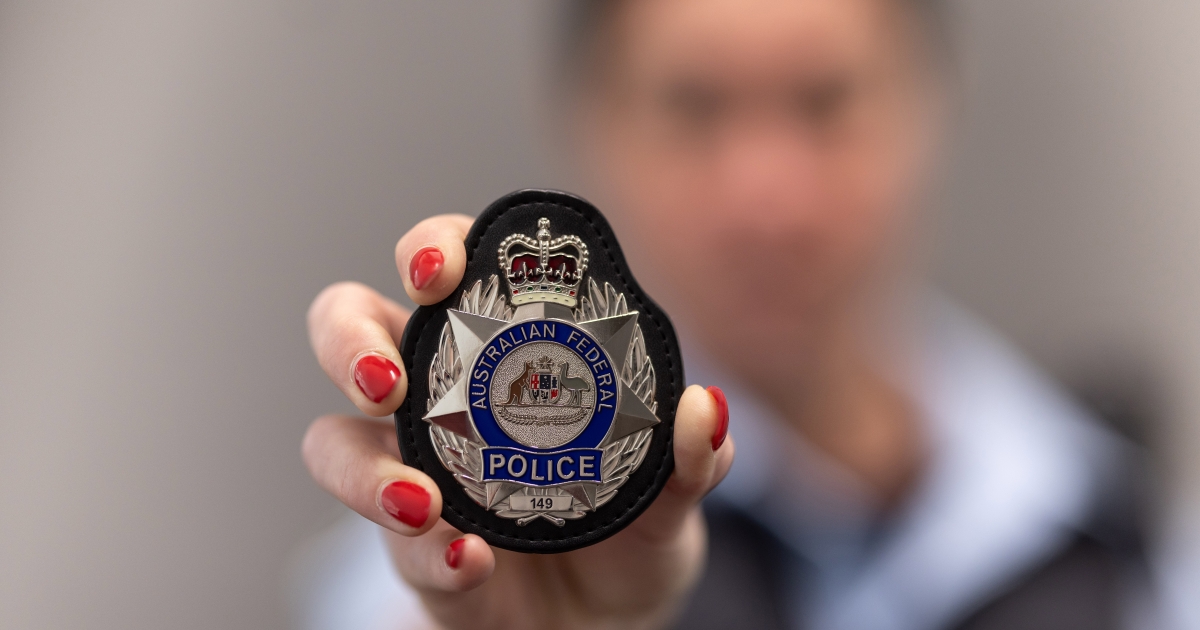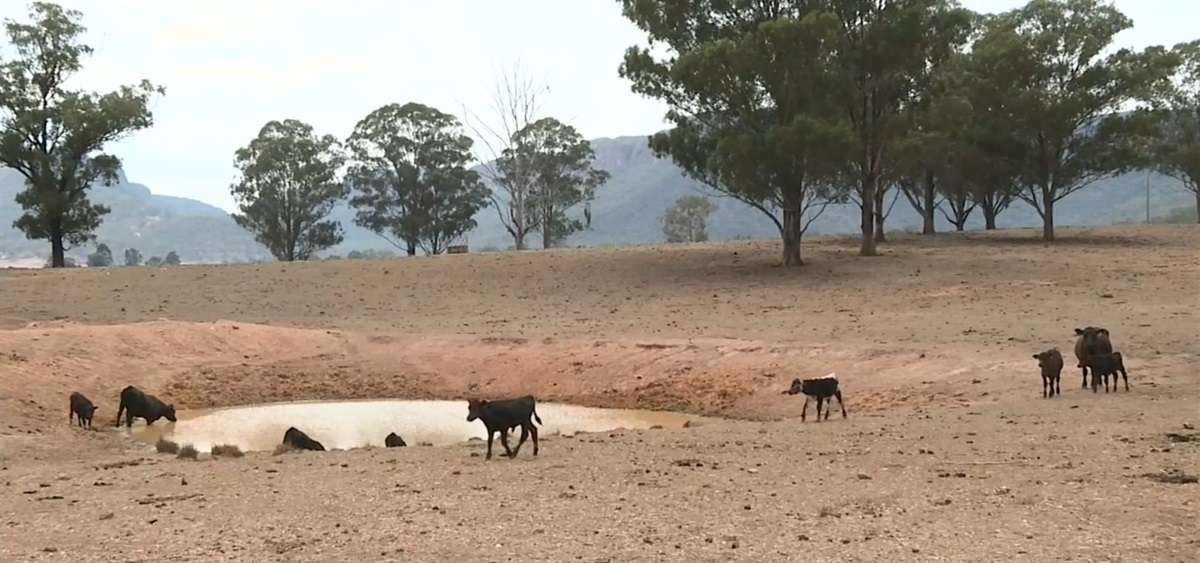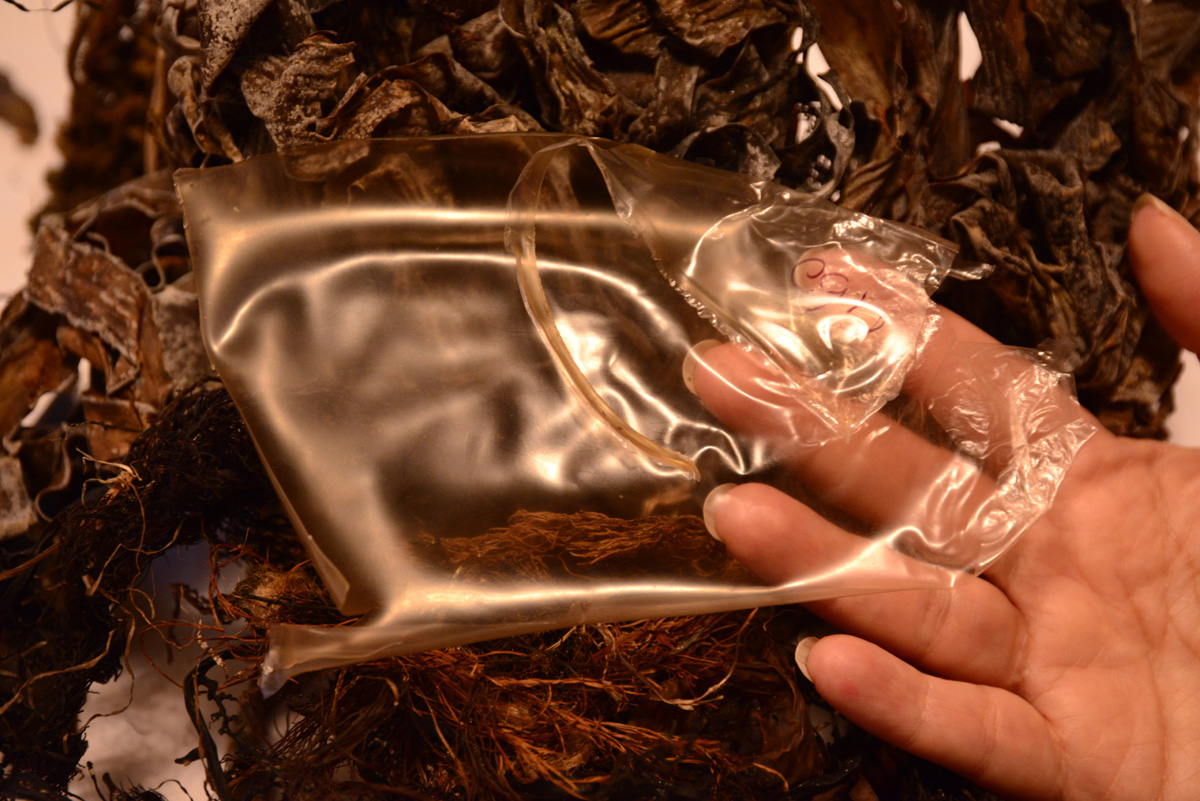
The development of Marine-derived Biopolymer Materials at Flinders University to help solve global plastics problems has taken the innovative step of inviting artists work with research scientists in identifying the widest possible applications for the new materials.
The 2025 National Packaging Targets aim for 100% of Australia’s packaging to be reusable, recyclable or compostable has seen marine biotechnology provide an innovative solution – with Flinders’ Centre for Marine Bioproducts Development producing seaweed-based plastic polymers in forms that are biodegradable.
For the widest possible use of these new biodegradable applications, they must be understood and embraced by commercial designers and end users – so they can be widely applied across an array of products and replace those that are currently being produced with damaging petroleum-based plastics.
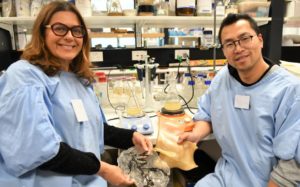
Artist Niki Sperou is working as part of the research team with Professor Wei Zhang and Mr Peng Su for the Green Plastics – Blue Ocean collaborative project to provide innovative methods and inspirational ideas for the commercial application of the new marine-derived biodegradable polymers. Some of these include:
- Medical applications, including wound dressings, dental implants, bio-compatible joint replacements, fracture fixation plates, bone defect fillers, personal hygiene gels (antimicrobial), antimicrobial PPE, and also 3D Bio-printing inks and scaffolds.
- The fashion industry can use the material for textile and fashion materials, such as seaweed leather, or a fabric stabiliser.
- In agriculture, it can provide efficient fertiliser and waste solutions due to the compounds’ biodegradability and compostability.
- Functional compounds for food, nutrition, pharmaceutical and cosmetic industries; antioxidant, antimicrobial, antiviral, anticancer, antitumor, immunomodulatory activity, antidiabetic, anti-STD, anti-inflammatory, anticoagulant, blood lipid and cholesterol reduction, dietary fibre prebiotic and more.
- Food industries can also use this application to replace plastics, from packaging material to antimicrobial and edible films.
“Technology is not the stand-alone focus of this project,” says Professor Wei Zhang. “Designing the widest possible applications for these materials to help solve a global plastic problem requires cultural understanding and social engagement. We aim to reduce future impact upon society with these next generation materials – and we design with sustainability and zero waste as our goal.”
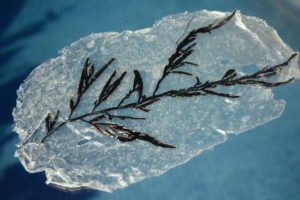
CMBD researcher Peng Su explains that seaweed biopolymers have unique film forming properties unapparelled by land-based starch plastics.
While Australia doesn’t currently farm seaweed and the Flinders researchers’ prototypes are made from beach cast seaweed collected by from South Australia’s Southeast coastline, the potential for this to expand into a major industry in Australia is significant.
The recently released Australian Seaweed Industry Blueprint commissioned by AgriFutures Australia predicts a growth potential for a $1.5 billion industry by 2040, creating 9,000 jobs and a 10% emissions reduction target.
https://www.agrifutures.com.au/wp-content/uploads/2020/09/20-072.pdf
“Seaweed is probably one of the most prolific and underutilised renewable resources on the planet,” says Professor Wei Zhang. “South Australia has been identified as a global hotspot for marine macroalgae, which opens the door for exciting future opportunities for innovation and new industry development.”
Cultivation and value-adding of Australian seaweed for global market is part of the ambition of growing an advanced Australian marine bio-industry and is a key component of the Marine Bioproducts Cooperative Research Centre Bid that recently progressed to Stage 2 (https://mbcrc.com).
CMBD has been creating innovations with seaweed-based biopolymers for eight years, predominately in functional foods and nutrition. Given the current environmental and health crisis associated with traditional plastics and their microparticles, CMBD initiated research to pursue sustainable and zero-waste options.
The Green Plastics – Blue Ocean collaborative project has been supported by ANAT, a global leader in brokering opportunities for artists to work with science and technology partners. Niki Sperou, who has been Artist in Residence at the Medical Biotechnology and the Centre for Marine Bioproducts Development, Flinders University since 2006, says “Together we aim to develop questions and communicate unconventional ideas, metaphors and realities allowing us to rethink our relationship with plastics.”
- Visit www.flinders.edu.au/centre-marine-bioproducts-development

